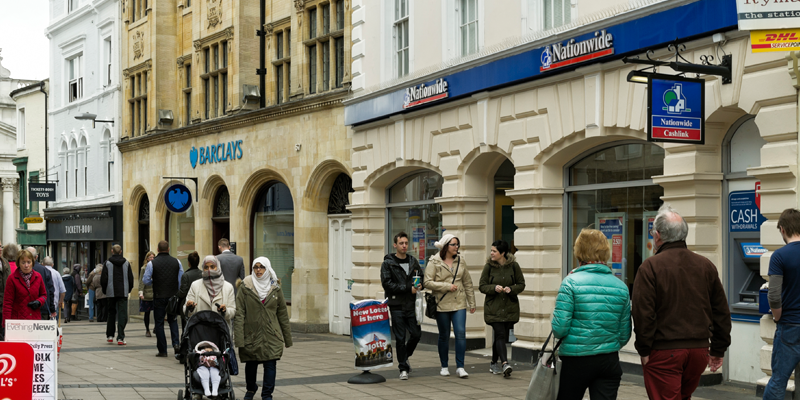While just 18% agree that banks in general treat consumers fairly, 68% are satisfied with their own bank. Unless current account providers can offer something different from the norm, switching is likely to remain a niche activity.
This September, the number of people switching banks fell to a record low with just 57,779 using the seven-day switching service. This was despite compelling cash incentives and the Competition and Markets Authority (CMA) promoting the seven-day switching service during this period.
So why aren’t more people switching? Our recent Reputation in Banking Report and findings from the YouGov Household Economic Activity Tracker help us to understand the current market and identify the key factors suppressing switching activity.
While consumers may be less likely to criticise banks today compared with a few years ago - for example 39% now say that banks have a widespread problem with ethics, compared to 80% in 2013 - they hardly show warmth or affection towards the sector in the UK.
Just 1 in 5 (21%) recognise that banks have improved a lot since the financial crisis began and few agree that they treat their customers fairly or offer quality products and services (18% and 14% respectively).
This general apathy may lead many consumers to conclude that they are all the same and it is not worth switching to a new one.
However, consumers see a distinction to banks in general and their own banks specifically. While many consumers have a negative view of the sector overall, two in three (68%) are satisfied with their own bank, with just one in ten (10%) being dissatisfied. As few have reasons to leave their bank, this further suppresses customers’ motivation to switch.
Consumers are left to weigh up the perceived hassle of switching banks against the short-term financial benefits (for example, Clydesdale and Yorkshire Bank recently announced that they would offer people £250 to move to them). That most people are not switching suggests that, for the vast majority, the perceived hassle outweighs the incentive. But is making it easier to switch the solution?
YouGov’s study indicates one in five (21%) Britons have considered switching current account but ultimately have not gone through with it. When asked why, approaching half (48%) of this group say that they thought it would be too much hassle, which seemingly supports a drive to make it easier to switch.
However, we must remember that the hassle involved is weighed up against the incentive being offered. Put simply: is the effort of changing bank account provider worth it for a one-off £250 payment?
With just one in ten (10%) seeing banks as innovative and only a minority (29%) believing that service has improved, consumers struggle to see the longer term value of switching to a new bank and the immediate cash incentive alone is seemingly not enough to make them act.
As long as banks continue to deliver the basic levels of service that their customers expect, there currently seems to be insufficient motive to look elsewhere. It appears unlikely that making switching easier will by itself have the impact that the CMA wants to achieve. Banks may need to look to differentiate themselves from each other – with true innovation in the sector driving increased competition among providers.
Find out more about YouGov Financial Services research
Find out more about YouGov's Reputation of Banking report
Image: Getty









